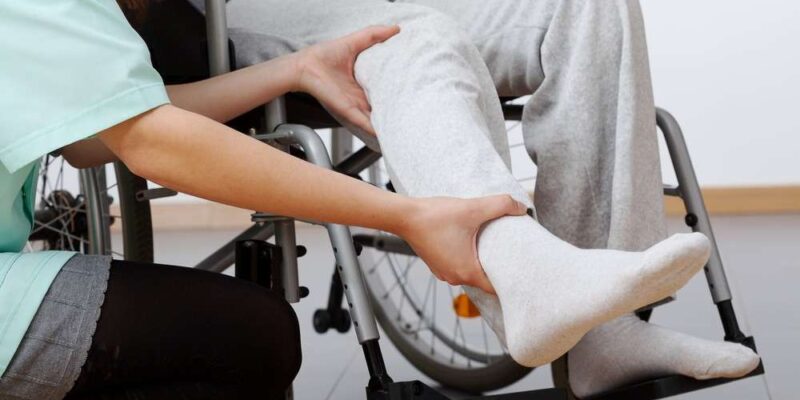Understanding personal injury is essential for anyone who has been harmed due to the negligence or intentional actions of another person or entity. Personal injury law exists to provide a framework through which victims can seek compensation for physical, emotional, and financial damages. This comprehensive guide explores the nuances of personal injury, legal procedures, types of claims, and the steps individuals can take to protect their rights.
What is Personal Injury?
Personal injury refers to harm caused to an individual’s body, mind, or emotions due to the actions or negligence of another party. These injuries can result from accidents, intentional misconduct, or defective products. The primary goal of personal injury law is to ensure that victims are fairly compensated for the damages they suffer. Compensation can cover medical expenses, lost wages, pain and suffering, and in some cases, punitive damages aimed at punishing the wrongdoer.
Common Causes of Personal Injury
Personal injury claims can arise from a wide range of situations, including:
- Motor Vehicle Accidents: Car, motorcycle, truck, and pedestrian accidents are among the most common sources of personal injury claims. Negligent driving, distracted driving, and reckless behavior often result in serious injuries.
- Slip and Fall Accidents: Property owners have a legal obligation to maintain safe environments. Failure to repair hazards, improper signage, or negligence in cleaning can lead to slip and fall incidents.
- Medical Malpractice: Healthcare professionals are expected to provide care consistent with established standards. Errors such as misdiagnosis, surgical mistakes, or medication errors may constitute grounds for personal injury claims.
- Workplace Injuries: Injuries sustained at work, particularly in high-risk industries like construction, manufacturing, or transportation, may qualify for personal injury claims if employer negligence is involved.
- Product Liability: Defective or unsafe products can lead to injuries. Manufacturers, distributors, and retailers may be held responsible for harm caused by faulty designs, manufacturing defects, or inadequate warnings.
- Intentional Torts: Assault, battery, and other deliberate acts of harm fall under personal injury law, allowing victims to seek compensation for the damages caused.
Types of Compensation in Personal Injury Cases
Victims of personal injury are entitled to several types of compensation, depending on the circumstances of their case. These may include:
- Medical Expenses: Covers hospital bills, rehabilitation, physical therapy, medications, and future medical care.
- Lost Wages: Compensation for income lost due to the inability to work during recovery.
- Pain and Suffering: Monetary awards for physical discomfort and emotional distress caused by the injury.
- Property Damage: Reimbursement for damage to personal property involved in the incident, such as vehicles or personal belongings.
- Punitive Damages: In cases of gross negligence or intentional harm, courts may award punitive damages to penalize the responsible party and deter similar behavior.
The Legal Process in Personal Injury Claims
Navigating a personal injury claim requires a clear understanding of legal procedures. The process typically involves the following steps:
- Consultation with an Attorney: A qualified personal injury lawyer can evaluate the case, explain legal options, and determine the viability of a claim.
- Investigation: Gathering evidence is crucial. This may include police reports, witness statements, medical records, photographs, and expert testimony.
- Filing a Complaint: The victim initiates the claim by filing a formal complaint with the appropriate court. The complaint outlines the nature of the injury, the responsible party, and the damages sought.
- Discovery Process: Both parties exchange relevant information, including documents and depositions. Discovery helps build a strong case and may facilitate settlement negotiations.
- Settlement Negotiation: Many personal injury cases are resolved through negotiated settlements, which can save time and legal costs compared to going to trial.
- Trial: If a fair settlement cannot be reached, the case proceeds to trial. A judge or jury evaluates the evidence and determines liability and compensation.
- Appeals: Either party may appeal the decision if they believe legal errors affected the outcome.
Statute of Limitations and Filing Deadlines
Personal injury claims are subject to a statute of limitations, which sets a deadline for filing a lawsuit. This period varies by state and type of injury, but failing to file within the prescribed timeframe can result in losing the right to compensation. Consulting an attorney promptly ensures that deadlines are met and evidence is preserved.
Factors Affecting Personal Injury Claims
Several factors influence the outcome and value of a personal injury claim:
- Severity of Injury: More serious injuries typically result in higher compensation due to extensive medical treatment and prolonged recovery.
- Liability and Negligence: Establishing fault is essential. Clear evidence of negligence increases the likelihood of a successful claim.
- Insurance Coverage: Insurance policies play a critical role in personal injury cases, determining the available financial resources for compensation.
- Comparative Fault: In some states, if the victim shares partial responsibility for the incident, compensation may be reduced proportionally.
How to Protect Your Rights After an Injury
Taking proactive steps immediately following an injury can significantly impact the success of a personal injury claim:
- Seek Medical Attention: Prioritize your health and document all injuries. Medical records serve as key evidence in personal injury claims.
- Document Everything: Keep detailed records of the incident, including photographs, witness contacts, and any related expenses.
- Avoid Social Media Posts: Sharing details about the incident online can be used against you in legal proceedings.
- Consult an Attorney Early: Legal guidance ensures that your rights are protected and increases the chances of fair compensation.
The Role of Personal Injury Attorneys
Personal injury attorneys specialize in representing victims and navigating the complexities of the legal system. Their responsibilities include:
- Case Evaluation: Assessing the strength of a claim and estimating potential compensation.
- Negotiation: Communicating with insurance companies and opposing counsel to secure fair settlements.
- Litigation: Representing clients in court, presenting evidence, and advocating for maximum compensation.
- Guidance: Explaining legal options, timelines, and the likely outcomes of different approaches.
Tips for Choosing the Right Personal Injury Lawyer
Selecting an experienced and reputable personal injury lawyer can make a significant difference:
- Look for attorneys with a strong track record in personal injury cases.
- Seek client reviews and testimonials to evaluate reputation and results.
- Ensure transparency regarding legal fees and payment structures.
- Choose a lawyer who communicates clearly and promptly responds to inquiries.
Common Misconceptions About Personal Injury Claims
There are several myths surrounding personal injury cases that can mislead victims:
- “All lawsuits take years to resolve.” While some cases go to trial, many are settled efficiently through negotiation.
- “You can only claim for physical injuries.” Emotional distress, lost wages, and property damage are also compensable.
- “Insurance companies always offer fair settlements.” Insurers may initially offer low settlements; legal representation can improve outcomes.
- “Only major accidents qualify.” Even minor accidents resulting in measurable harm may be valid claims.
Preventing Personal Injury
While accidents are sometimes unavoidable, individuals and organizations can reduce risks:
- Practice Safe Driving: Avoid distractions, adhere to speed limits, and obey traffic laws.
- Maintain Property Safety: Regularly inspect and repair hazards in homes and workplaces.
- Follow Workplace Safety Protocols: Employers should implement safety measures and provide training to minimize accidents.
- Use Products Responsibly: Follow manufacturer instructions and report defects promptly.
Conclusion
Personal injury law plays a crucial role in ensuring justice for individuals harmed by negligence or intentional wrongdoing. Understanding your legal rights, documenting evidence, and seeking professional guidance are essential steps toward achieving fair compensation. Whether dealing with minor injuries or life-altering accidents, knowledge of the personal injury process empowers victims to make informed decisions and protect their interests effectively.
Frequently Asked Questions (FAQ)
1. What qualifies as a personal injury?
A personal injury occurs when an individual suffers physical, emotional, or financial harm due to another person’s negligence or intentional actions. Examples include car accidents, slip and fall incidents, medical malpractice, and workplace injuries.
2. How long do I have to file a personal injury claim?
The filing deadline depends on your state’s statute of limitations, which typically ranges from one to six years. It is crucial to consult a personal injury attorney promptly to avoid missing deadlines.
3. Can I handle a personal injury claim without a lawyer?
While possible, navigating insurance negotiations and legal procedures without professional guidance can reduce the likelihood of receiving fair compensation. Hiring an experienced attorney is highly recommended.
4. How is compensation calculated in personal injury cases?
Compensation considers medical expenses, lost wages, property damage, pain and suffering, and in some cases, punitive damages. The severity of injury and evidence of negligence heavily influence the total award.
5. What should I do immediately after an accident?
Seek medical attention, document the scene, gather witness information, report the incident to relevant authorities, and consult a personal injury lawyer. Avoid posting details online.
6. Are there limits to personal injury claims?
Yes, insurance policy limits, state laws, and comparative fault rules may restrict the amount of compensation awarded in a claim.
7. How long does a personal injury case typically take?
The duration varies depending on case complexity, willingness to















Comments